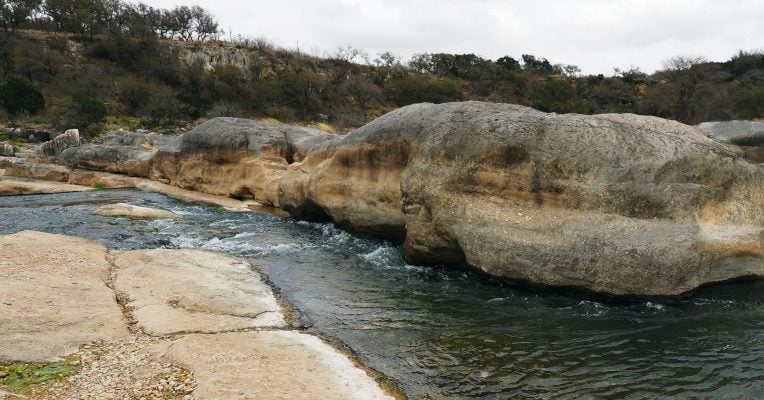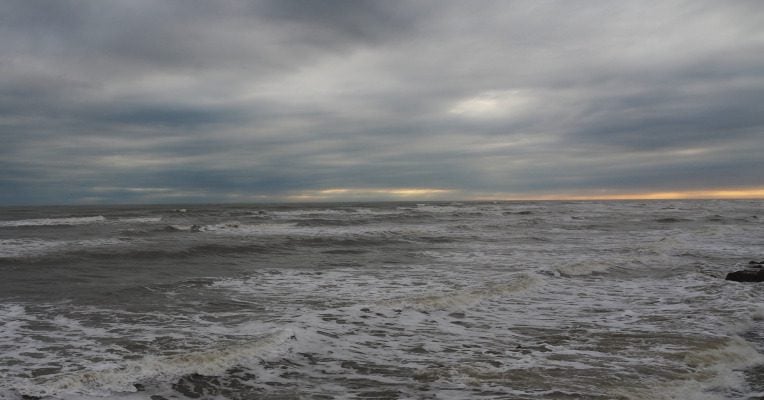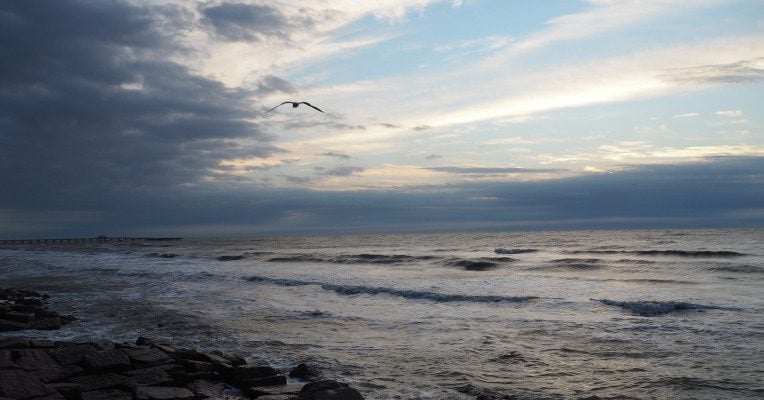Religious certainty is the greatest sin.
It is caused by a fear of hell and damnation.
It is enabled by intellectual dishonesty.
And it is killing this country.
Last week I came across a Twitter thread from someone I don’t know who was trying to explain so-called “pro-life” people to those who are fighting to restore reproductive rights. The thread isn’t long and I encourage you to read it for yourself. While I could nitpick some elements of it, all of it is directionally correct and most of it is exactly correct. Here are three key excerpts:
“Pro-lifers” genuinely believe aborting a fetus is the same as taking a knife to a toddler. They’ve been that brainwashed.
99% of “pro-lifers” are very religious, and THAT is the backbone of their beliefs. A baby is a miracle, every time, in every situation, because God knew them and placed them in your womb for care. God wanted them here. God needs them here. And how dare anyone get in the way.
“Pro-lifers” don’t feel like they are pushing their personal beliefs on you. They believe their beliefs are the only beliefs. They believe their beliefs are universal. The only valid ones. The basis of all life on earth, the basis of every single person’s reality.
This is all true. I’ve been blogging about the necessity of uncertainty in religious matters for at least a decade. Accepting uncertainty was critical for me on my journey to exorcising the tentacles of fundamentalism from my soul.
But this thread lays bare just how harmful religious certainty is, not just to individuals, but to our society as a whole.
Sins vs. crimes
I can already hear some people yelling “how can certainty be worse than murder and rape?” Murder and rape aren’t sins – they’re crimes. They’re actions that actively and directly harm another person, which is why we have laws against them and why we enforce those laws with severe punishment.
Sins are things that do not cause harm in and of themselves but that often lead to harm, especially if they’re done in excess. My Christian friends tell me that sin is “missing the mark.” While I don’t like their implication that “the mark” is perfection (we are flawed humans – perfection is both impossible and unnecessary) I agree that sin need not begin with ill intent. If something leads to harm, or is likely to lead to harm, then it’s something to be avoided. Or at least, monitored very, very closely.
Religious certainty is no crime. Believing your religion is the One True Way causes no direct harm to anyone. But beliefs lead to actions, and actions have consequences. If your beliefs cause you to treat followers of other religions as inferior, to harass them with proselytizing, or to coerce them into following your religion, that is direct harm.
Make no mistake: religious certainty is a sin.
The inherent uncertainty of religion
Religion is far more than what you believe. Religion is how we form and maintain relationships with our Gods, with our ancestors, with Nature, and with each other. It’s what we do and how we live. These elements of religion are neither right nor wrong – they’re part of who we are and part of whose we are.
But in contemporary Western culture, “religion” is generally understood to be about what you believe: which set of supernatural propositions you affirm and which ones you reject. This is especially true in places like the United States where Protestantism and its doctrine of sola fide dominates.
But supernatural propositions are impossible to prove. Are there many Gods, one God, or no Gods? I’m a polytheist, but I can’t prove I’m right anymore than anyone else can prove I’m wrong. Does life continue after death? I believe it does, but it’s impossible to say with certainty.
Some religions claim historicity for mythological events, such as Noah’s Ark or the resurrection of Jesus. They miss the point of the stories (which is to communicate spiritual wisdom, not to report literal facts) and they overstate the strength of the evidence for their position – while minimizing or outright denying the evidence against it.
Some believe the only proper response to this inherent uncertainty is agnosticism. I believe a better approach is to dive deeply into what we believe is most likely, but to hold those beliefs loosely. When we discover or are presented with evidence that something we believe is wrong or harmful, integrity demands that we change our beliefs.
Unfortunately, some religions teach otherwise.
High stakes religion
Some religions teach that the most important thing in life is to believe the “right” things. They teach that believing the “right” supernatural propositions and rejecting the “wrong” supernatural propositions is the difference between spending an eternal afterlife in bliss and spending it in physical torment.
And of course, the “right” things are whatever they happen to teach.
When I was growing up, the fundamentalist Baptists taught that most Catholics were going to hell, because the Catholics believed the wrong things – even though they’re Christians. At the same time, they laughed at the Church of Christ (that’s these people, not the United Church of Christ, who are arguably the most theologically and politically liberal Protestant denomination) for believing that only their members were going to heaven.
If you think that affirming the right belief is the most important thing in life, and that the stakes are quite literally your soul, then you’re going to want certainty – any way you can get it.
A desperate desire for certainty
The fear-driven desire for certainty causes some people to falsely claim that it’s possible. I remember hearing preachers say “you can know for certain that you’re saved.” They rattled off a list of Bible verses about faith and hope… and then rattled off another list about people who believed the wrong things.
How can you be sure you’re in the first group and not the second group? Do I believe exactly the right things? Did I pray exactly the right prayer in exactly the right way? What if I have honest doubts about the whole concept of salvation and damnation?
A Calvinist once told me that the fact I had those concerns even while honestly trying to be a good Christian meant that I am not among “the elect” and therefore was predestined for damnation. As a Pagan I will leave the critique of Calvinism up to Christians, but I will say that Calvinism is antithetical to the message of Jesus as recorded in the Gospels, and it’s responsible for many of the problems in the United States today.
Of course, not everyone who claims to have religious certainty is a Calvinist. But anyone who believes that holding the right belief is the difference between heaven and hell – and who takes that belief seriously – is going to want to be certain they’re headed to the right place.
Even if they can’t actually be sure.
The preacher has no clothes
So what do you do if you need to be certain but certainty isn’t possible?
You claim that you really are certain. Loudly. Over and over again. Repeat a lie enough times again and people start to believe it. Eventually you start to believe it.
And when your leaders repeat those lies – loudly, over and over again – it affirms what you want to be true. When they say that people have believed these things for two thousand years (whether that’s true or not) it affirms what you want to be true. You trust your preacher, you trust your denomination, you trust everyone and everything… except your own brain and your own heart.
Early in his career, Billy Graham had legitimate religious doubts. He decided he “didn’t have a good enough mind to settle deep theological questions” and accepted what he was told was true. And then he went out, night after night, and preached certainty where certainty was not possible.
And everyone claimed they saw the Emperor’s New Clothes, because they desperately wanted them for themselves.
Some Christians say that people reject Christianity only because they want a “license to sin.” In reality, those making that accusation often accept Christianity because they want certainty where certainty is not possible.
Pascal’s Wager is intellectually dishonest and spiritually bankrupt
Some people admit that certainty is not possible, but they argue that belief is “a good bet.” But Pascal’s Wager is intellectually dishonest and spiritually bankrupt.
It’s intellectually dishonest because it assumes there are only two options: either the Christian God exists and he is everything orthodox Christianity says he is, or there are no Gods. It ignores the possibility that there are many Gods, or that pantheism is true, or that there is one God who is not the God of orthodox Christianity. As I often tell Calvinists, if the fundamentalist Muslims are right, we’re both going to hell.
It’s spiritually bankrupt because acting as though you believe because you’re playing the odds is hardly true belief. It reinforces the false claim that certainty is possible, and the claim that what you believe is more important than how you live your life.
Pascal’s Wager attempts to accommodate those who realize they can’t be certain while keeping them trapped in an exclusivist religion.
An honest religion is a humble religion
In contrast, honest religion – any honest religion – accepts that while there are many things we know, there are other things we do not know, and some things we can never know. Not because our technology isn’t sufficiently advanced, but because they’re beyond the capacity of our brilliant but finite brains.
An honest religion is upfront about its foundational assumptions. But unlike Calvinists with their “presuppositions” it acknowledges that they are assumptions and doesn’t treat them as facts.
An honest religion admits “we might be wrong” and so it remains open to new discoveries, new experiences, and new ways of thinking. Revelation can never be sealed.
And because it acknowledges it might be wrong, it treats those of other religions with dignity and respect and accepts their religion as one way among many, not as false and in need of correction. It judges all religions – including itself – by how they inspire their followers to live in peace with everyone else.
Some people can’t be reasoned with
There is no reasoning with someone who believes a fertilized egg is a human person with such certainty that they’re willing force other people to carry a pregnancy and bear a child they don’t want or that will be harmful to them.
Perhaps they really do believe it. Perhaps their church tells them they have to believe it so they claim they do, doubts be damned. That philosophers, theologians, and ordinary people have struggled with the question of when life begins for as long as we’ve been human doesn’t register with them. They’re certain they have the One True Answer, and so they feel justified in forcing their beliefs on everyone else.
Their certainty is a sin. It causes no direct harm, but it inspires actions that harm others. Harm like telling a 10-year-old rape victim that she must go through childbirth and become a mother. Harm like denying women pain-reducing medication because it might cause an abortion.
Harm like stripping the right to bodily autonomy from half the population.
They can only be defeated
I hope this post and conversations like it will cause some thoughtful people to begin questioning what they’ve been taught. I hope they begin to trust their own judgement instead of the judgement of their preachers, priests, elders, and bishops.
But mainly, I hope it helps those of us who practice honest religion and who acknowledge the uncertainty of difficult issues to realize what we’re up against. Our opponents aren’t just people with different opinions. They’re people who believe the fate of their souls depends on believing what they’ve been told they have to believe, no matter how unsupportable, no matter how unlikely, no matter how harmful.
They cannot be reasoned with. They can only be defeated.
The rules have been changed – they can no longer be defeated in the courts with appeals to logic and reason and fundamental rights. They must be defeated at the polls, over and over again. They must be defeated with direct action, helping vulnerable people get the care they need no matter what.
But more than that, their false certainty must be challenged in the court of public opinion.
Because honesty demands that we do so.
And because their certainty is killing this country.





















